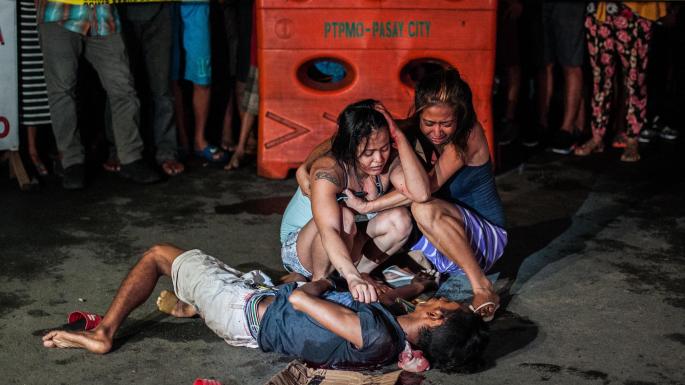
Apparently, it’s all the media’s fault that the war on drugs is keeping tourists away from the Philippines.
This is according to Tourism Secretary Wanda Teo, who is currently enjoying a lovely death-free trip to Thailand with her boss President Duterte.
Speaking to reporters covering the state visit, she said: “Help us because, you know, it’s really difficult for me to sell the Philippines, especially when extrajudicial killings become the topic.”
There, in one sentence, she’s urging the nation’s journalists to stop doing their job, which is to report news.
But what is news? To quote newspaper magnate William Randolph Hearst: “News something somebody doesn’t want printed; all else is advertising.”
This mantra is particularly important in the Philippines, a country with a vastly powerful monied class that — even with the best efforts of the press — can often seem untouchable.
Just this week we saw the case of David Lim, who casually shot a man in a road rage incident. David is the nephew of tycoon and alleged drug lord Peter Lim, and if it wasn’t for a video of the encounter being widely circulated in social media and the press, you can guarantee he would not have been brought to justice.
Having said that, there’s no doubt that when his case comes to trial, his lawyer will argue that this attention has prejudiced the case, and again seek to blame the media for doing its job.
The idea that it’s the reporting of a problem that creates the problem — a sort of Shrödinger’s Cat feat of logic — is also behind the impeachment complaint against Vice President Leni Robredo.
The basis for this case is that because she spoke about extrajudicial killings via a video message to the UN General Assembly, she’s causing economic harm to the country.
So, as the tourism secretary would presumably prefer, she should have told them there was no problem at all, the reports of thousands of deaths have been exaggerated by the media and there’s never been a better time to invest in the Philippines….”
But it’s not just “the great and the good” who seem determined to blame the media for the world’s ills — everybody seems to be at it these days.
As an experienced journalist from the old days of hot metal printing, there are two terms guaranteed to boil my piss when they are misapplied (which is pretty much always) — “mainstream media” and “fake news”.
First, the reason some media is “mainstream” is nearly always because it is produced to a high standard, fact checked, edited, archived and, if necessary, corrected.
I find that folks who use this term with a sneer will then turn to “alternative news” sources which, more often than not, are festering piles of poisonous bullshit.
As for “fake news”, well, introducing this term into the public lexicon is very much like allowing a toddler to gets its greasy little hands onto the idea of “fairness”. Once done, anything that doesn’t immediately delight their little brains will be deemed “not fair” and accompanied by explosive tantrums. And so it is with “fake news”.
(And by the way, this article isn’t news, fake or otherwise, it’s an “opinion” piece prompted by topical events. That’s an important distinction which many people seem to miss.)
So, anyway, back to tourism chief Wanda, telling us to turn a blind eye to the killings in order to help her do her job.
Wouldn’t it just be so much easier to ask her boss to stop doing the killings in the first place? Or even enact some policies that even the most skeptical “mainstream media” could report on in a positive light? No?
Or is it just always easier to shoot the messenger?
